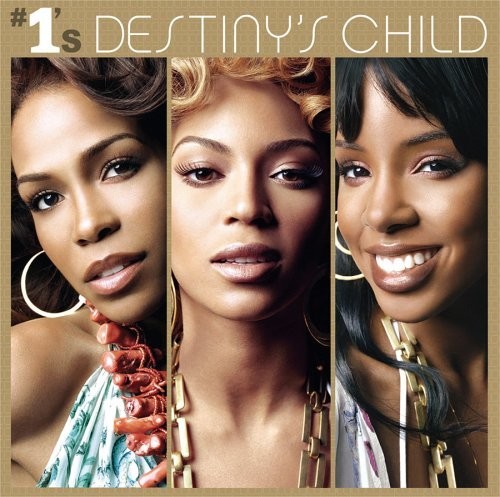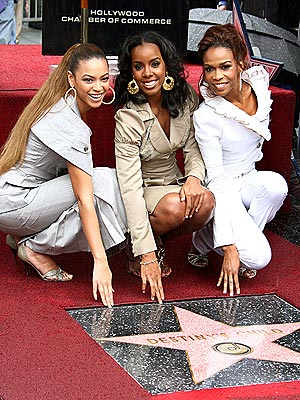
Taking inspiration from a passage in the Book of Isaiah, the group changed its name to Destiny's Child in 1993. Together, they performed in local events and, after four years on the road, the group was signed to Columbia Records in late 1997. That same year, Destiny's Child recorded its major label debut song, "Killing Time", for the soundtrack to the 1997 film, Men in Black.
The following year, the group released its self-titled debut album, scoring their first major hit "No, No, No". That album established the group as a viable act in the music industry, amassing moderate sales and winning the group three Soul Train Lady of Soul Awards for "Best R&B/Soul Single" for "No, No, No", "Best R&B/Soul Album of the Year" and "Best R&B/Soul or Rap New Artist". However, the group rose to bona fide stardom after releasing their multi-platinum sophomore album The Writing's on the Wall in 1999. The record features some of the group's most widely known songs such as "Bills, Bills, Bills", the group's first number-one single, Jumpin' Jumpin'", and "Say My Name", which became their most-successful song at the time, and would remain one of their signature songs. "Say My Name" won the Best R&B Performance by a Duo or Group with Vocals and the Best R&B Song at the 2001 Grammy Awards.The Writing's on the Wall sold more than seven million copies, essentially becoming their breakthrough album.

Along with their commercial successes, the group became entangled in much-publicized turmoil involving the filing of a lawsuit by Luckett and Roberson for breach of contract. The issue was heightened after Michelle Williams and Farrah Franklin appeared on the video of "Say My Name", implying that Luckett and Roberson had already been replaced. Eventually, Luckett and Roberson left the group. Franklin would eventually fade from the group after five months, as evidenced by her absences during promotional appearances and concerts. She attributed her departure to negative vibes in the group resulting from the strife.
After settling on their final lineup, the trio recorded "Independent Women Part I", which appeared on the soundtrack to the 2000 film, Charlie's Angels. It became their best-charting single, topping the official U.S. singles chart for eleven consecutive weeks. The success cemented the new lineup and skyrocketed them to fame. Later that year, Luckett and Roberson withdrew their case against their now-former band mates, while maintaining the suit against Mathew, which ended in both sides agreeing to stop public disparaging.

Destiny's Child's third album, Survivor, channels the turmoil they underwent, spawning its eponymous lead single, which was a response to the experience. The themes of "Survivor", however, caused Luckett and Roberson to refile their lawsuit, believing that the songs were aimed at them. However, the proceedings were eventually settled in June 2002. Meanwhile, the album was released in May 2001, debuting at number one on U.S. Billboard 200 with 663,000 units sold. To date, Survivor has sold over ten million copies worldwide, over forty percent of which were sold in the U.S. alone. The album spawned other number-one hits—"Bootylicious" and the title track, "Survivor", the latter of which earned the group a Grammy Award for Best R&B Performance by a Duo or Group with Vocals. After releasing their holiday album, 8 Days of Christmas, the group announced a hiatus to pursue solo projects.